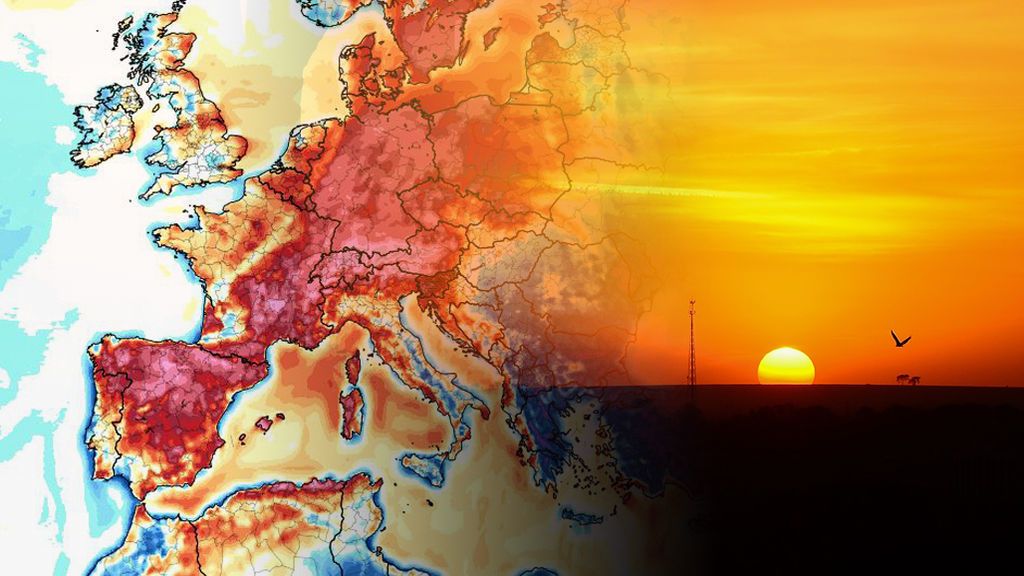WHAT IS THE GLOBAL WARMING AND WHAT EFFECTS DOES THE PLANET EARTH?

Global warming is the long-term
rise in the average temperature of the Earth's climate system. It is a major
aspect of climate change, and has been demonstrated by direct temperature
measurements and by measurements of various effects of the warming global.The
terms global warming and climate change are often used interchangeably.However,
speaking more accurately, global warming denotes the mainly human-caused
increase in global surface temperatures and its projected continuation,but
climate change includes both global warming and its effects, such as changes in
precipitation.While there have been prehistoric periods of global warming, many
observed changes since the mid-20th century have been unprecedented over
decades to millennia .
The Intergovernmental Panel on Climate Change (IPCC) Fifth Assessment Report concluded, "It is extremely likely that human influence has been the dominant cause of the observed warming since the mid-20th century."
The largest human influence has
been the emission of greenhouse gases such as carbon dioxide, methane, and
nitrous oxide.
Climate model projections
summarized in the report indicated that during the 21st century the global
surface temperature is likely to rise a further 0.3 to 1.7 °C (0.5 to 3.1 °F)
in a moderate scenario, or as much as 2.6 to 4.8 °C (4.7 to 8.6 °F) in an
extreme scenario, depending on the rate of future greenhouse gas emissions and
on climate feedback effects.
These findings have been recognized by the
national science academies of the major industrialized nations and are not
disputed by any scientific body of national or international standing.
The effects of global warming
include rising sea levels, regional changes in precipitation, more frequent
extreme weather events such as heat waves, and expansion of deserts.Ocean
acidification is also caused by greenhouse gas emissions and is commonly
grouped with these effects even though it is not driven by temperature. Surface
temperature increases are greatest in the Arctic, which has contributed to the
retreat of glaciers, permafrost, and sea ice. Overall, higher temperatures
bring more rain and snowfall, but for some regions droughts and wildfires
increase instead. Climate change threatens to diminish crop yields, harming
food security, and rising sea levels may flood coastal infrastructure and force
the abandonment of many coastal cities. Environmental impacts include the
extinction or relocation of many species as their ecosystems change, most
immediately the environments of coral reefs, mountains, and the Arctic.
Societal responses to global
warming include mitigation by emissions reduction, adaptation to its effects,
and possibly climate engineering. Countries work together on climate change
under the umbrella of the United Nations Framework Convention on Climate Change
(UNFCCC), which has near-universal membership. The ultimate goal of the
convention is to "prevent dangerous anthropogenic interference with the
climate system".Although the parties to the UNFCCC have agreed that deep
cuts in emissions are required and that global warming should be limited to
well below 2 °C (3.6 °F) in the Paris Agreement, the Earth's average surface
temperature has already increased by about half this threshold and current
pledges by countries to cut emissions are inadequate to limit future warming.
Observed temperature changes:
Climate proxy records show that
natural variations offset the early effects of the Industrial Revolution, so
there was little net warming between the 18th century and the mid-19th century,
when thermometer records began to provide global coverage. The IPCC has adopted
the baseline reference period 1850–1900 as an approximation of pre-industrial
global mean surface temperature.
Multiple independently produced
instrumental datasets confirm that the 2009–2018 decade was 0.93 ± 0.07 °C
warmer than the pre-industrial baseline (1850–1900). Currently, surface
temperatures are rising by about 0.2 °C per decade. Since 1950, the number of
cold days and nights have decreased, and the number of warm days and night have
increased. Historical patterns of warming and cooling, like the Medieval
Climate Anomaly and the Little Ice Age, were not as synchronous as current
warming, but may have reached temperatures as high as those of the late-20th
century in a limited set of regions. Past examples of climate change provide
insight into modern climate change.
Although the most common measure
of global warming is the increase in the near-surface atmospheric temperature,
over 90% of the additional energy stored in the climate system over the last 50
years has warmed ocean water.
The remainder of the additional energy has
melted ice and warmed the continents and the atmosphere.
The warming evident in the instrumental temperature record is consistent with a wide range of observations, documented by many independent scientific groups; for example, in most continental regions the frequency and intensity of heavy precipitation has increased. Further examples include sea level rise, widespread melting of snow and land ice, increased heat content of the oceans, increased humidity, and the earlier timing of spring events, such as the flowering of plants.
Observed and expected effects on social systems:
-The effects of climate change on human systems have been detected worldwide, mostly due to warming or changes in precipitation patterns, or both.
-Wheat and corn production worldwide has been affected by climate change. Although agricultural productivity has increased in some mid-latitude regions, such as the United Kingdom and northeast China, economic losses due to extreme weather events have increased worldwide.
-Has a mortality linked to the change from cold to heat in some regions as a result of warming.
- Climate change has altered the livelihoods of the Arctic indigenous peoples and there is emerging evidence of their impacts on the livelihoods of indigenous peoples in other regions. Its effects are observed in more regions than before, on all continents and along ocean areas.





















